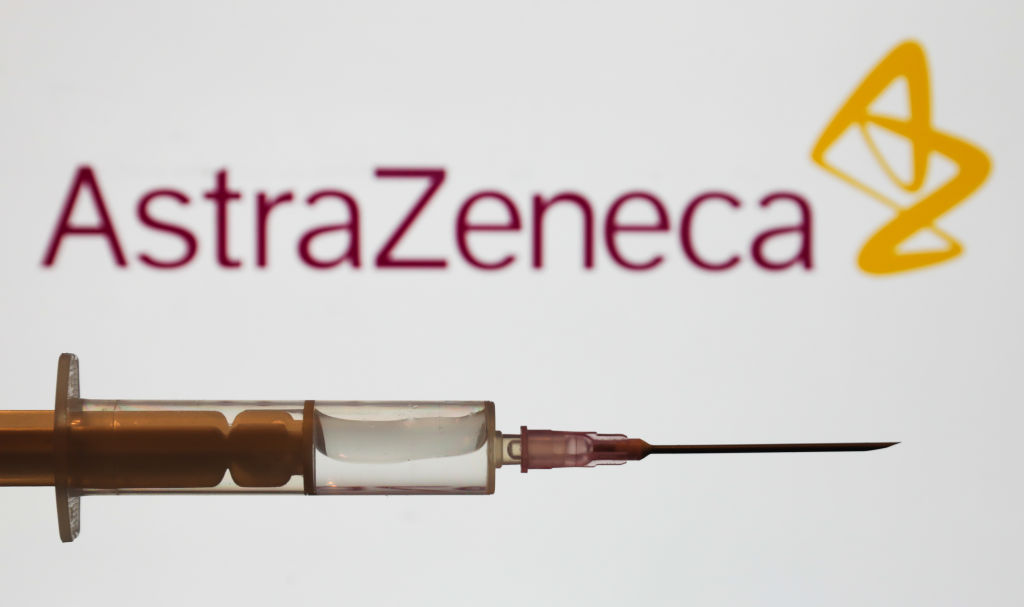Since last week, hundreds of social media posts and news stories have claimed that AstraZeneca is removing its COVID vaccine from the market after admitting it caused blood clots in recipients. “AstraZeneca recalls its Coronavirus vaccine worldwide, due to side effects which lead to blood clots and death,” reads one Facebook post. “AstraZeneca Withdraws Covid Vaccine Due To It Causing Blood Clots. The people that said it was safe and effective should be immediately arrested,” reads another on X (formerly Twitter).
It is true that AstraZeneca’s COVID vaccine—also called Vaxzevria—is being withdrawn from markets, and AstraZeneca did recently acknowledge that the vaccine can cause blood clots in a small subset of recipients. However, there is no evidence that the two events are related. Blood clotting was first identified as a risk of the vaccine by medical regulators more than three years ago, and AstraZeneca announced that the product was being withdrawn for economic reasons. The vaccine was never used in the U.S.
AstraZeneca’s COVID-19 vaccine—which uses viral vector technology—was developed in partnership with Oxford University and first authorized for use by U.K. medical regulators on December 30, 2020. Health experts viewed the AstraZeneca vaccine as a good option for poorer countries because of its relatively low cost and because it had less onerous storage requirements than the mRNA vaccines, and a United Nations program eventually coordinated the distribution of more than 1 billion doses of the vaccine to low- and middle-income countries. Research by Airfinity, a U.K. data analytics company, in 2022 found that the AstraZeneca vaccine saved approximately 6.3 million lives worldwide in its first year of use, higher than any other COVID vaccine.
The U.S. contracted with AstraZeneca early in the pandemic for the delivery of 300 million doses of the vaccine, but the success of Moderna’s and Pfizer’s mRNA vaccines in the country led the Biden administration to donate its doses rather than wait for their approval by U.S. regulators. AstraZeneca opted to withdraw its application for FDA approval in November 2022.
AstraZeneca vaccine enjoyed early success in the U.K. and Europe, but safety concerns emerged quickly. Rare cases of blood clotting were reported in the U.K. and EU and reported to health authorities within months of the rollout. Analysis by the World Health Organization’s Global Advisory Committee on Vaccine Safety in April 2021 determined that the risk was very low, and a review by U.K. regulators at the time found that occurrences were extremely rare. The European Medicines Agency reached a similar conclusion in its own review, determining that blood clots should be listed as a rare side effect of the vaccine, but also that the overall benefit-to-risk ratio remained positive.
On April 28, 2024, the Telegraph reported that AstraZeneca acknowledged links between rare blood clots and the vaccine for the first time in court documents related to a November 2023 class action lawsuit by alleged victims of complications related to the vaccine.
On May 7, AstraZeneca began withdrawing its COVID vaccine worldwide, citing a decline in demand for the product. Though AstraZeneca’s vaccine was widely used in the first two years of the pandemic, the pandemic’s abatement has cooled demand for COVID vaccines across the board, and updated vaccines with greater efficacy against newer variants now dominate what is left of the market. “As multiple, variant COVID-19 vaccines have since been developed there is a surplus of available updated vaccines. This has led to a decline in demand for Vaxzevria, which is no longer being manufactured or supplied,” an AstraZeneca spokesperson told The Dispatch Fact Check in an emailed statement. “We will now work with regulators and our partners to align on a clear path forward to conclude this chapter and significant contribution to the COVID-19 pandemic.”
If you have a claim you would like to see us fact check, please send us an email at factcheck@thedispatch.com. If you would like to suggest a correction to this piece or any other Dispatch article, please email corrections@thedispatch.com.







Please note that we at The Dispatch hold ourselves, our work, and our commenters to a higher standard than other places on the internet. We welcome comments that foster genuine debate or discussion—including comments critical of us or our work—but responses that include ad hominem attacks on fellow Dispatch members or are intended to stoke fear and anger may be moderated.
With your membership, you only have the ability to comment on The Morning Dispatch articles. Consider upgrading to join the conversation everywhere.